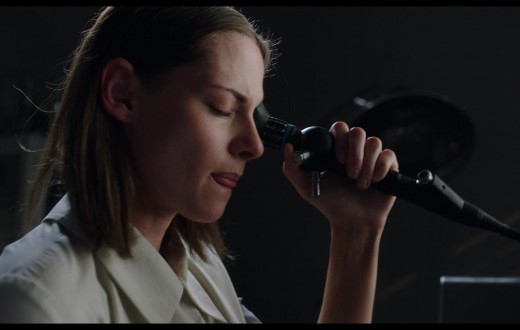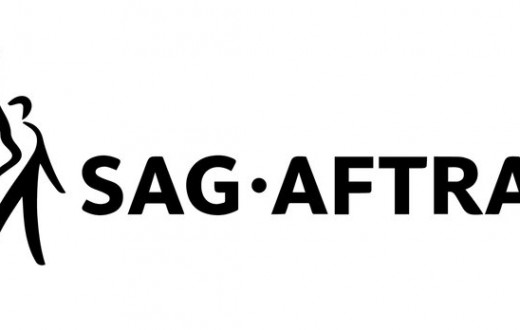A Conversation With Actor and App Developer Ron Severdia
If anyone might have legit reasons to get frustrated with the modern world’s total enchantment with cell phones, it’s actors.
For starters, how about when someone’s phone rings in the theater while you’re in the middle of your big monologue? Or the annoying glow of people texting in the movie theater while you’re waiting for your scene to come up? Or even just clueless people clogging up the sidewalk with their faces glued to the screen when you’re running late for an audition?
But don’t smash your phone with a hammer and go full Luddite just yet, fellow actors. Although there are reasons why modern technology is annoying, the good news is there are plenty of people out there who sympathize with the plight of the performer. Some of them are even trying to make our lives easier using apps.
One such developer is Ron Severdia, the brains behind the Shakespeare Pro app, along with a whole suite of apps designed to assist busy performers, directors and stage managers. Severdia is also an actor, naturally, and he is currently winding down a world-premiere run of a stage version of “Sideways” based on the 2004 Paul Giamatti film in his home stomping grounds of Northern California.
“I’m in Marin County and so just north of me is Sonoma County and Napa,” Severdia said via Skype, “and that’s where the theater is, so it’s a good fit.”
But between performances–and one assumes generous wine-tastings after every show and perhaps even during–Severdia is hard at work tweaking his flagship app, Shakespeare Pro. It’s a tremendously useful app that offers an array of tools for helping the busy actor work on plays and sonnets written by the Bard of Avon.
And while Severdia clearly takes great joy in easing the way for other actors to bring Shakespeare’s works to life for modern audiences, the app originally came about not via any great streak of altruism, but strictly in self-defense. To be more specific, Severdia created it in order to save on chiropractor bills.
“So I was in a production of ‘King Lear,’ and I had this big, massive tome like many actors have of his Complete Works, and you end up breaking your back with that,” Severdia said. “The cell phone at the time, the most advanced one was probably the Treo made by Palm. And they were terrible, like all cell phones before the iPhone. But I had actually created a website that my cell phone could access with the Complete Works on it, and that was PlayShakespeare.com. So that was version one of the app, even though it wasn’t really an app, just a way I could access the Complete Works without carrying this big book around with me.”
But all that changed–much like the world itself did–with the advent of the iPhone.
“With the first iPhone you couldn’t install apps, you could just use the ones it came with,” Severdia continued. “I could still access my website with the Complete Works on it. But once they launched the App Store, within about a week and a half I had an app up there. So it’s been almost ten years now, almost since the beginning [of both the iPhone and the App Store] that I’ve had an app available there.”
But longevity is just one aspect of the Shakespeare Pro story. For the working actor who faces the daunting task of preparing for a Shakespeare audition or production, the depth and breadth of the array of features available are truly a godsend.
Not only are all 41 plays, 154 sonnets and six poems including the “doubtful works” preloaded, there is also a Study section that includes articles on Shakespeare’s bio, the chronology of the plays, a section on Elizabethan theaters, and best of all, an in-depth section on scansion, so you can brush up before that big audition.
But one particularly exciting addition with the paid version of the app is the ability to use “notebooks,” materials you create yourself or pre-prepared ones that you can access in conjunction with the play you’re reading.
“Your notes are collected into notebooks, and you can share those,” Severdia said. “And there’s some free notebooks that come with the Pro version, so for instance, with ‘As You Like It,’ you can just import that notebook and there are notes and commentary running throughout the play. Teachers for example can share their notes with a class.”
As an actor who loves really digging into the plays he performs in, Severdia has come at the problem of creating a user-friendly approach to Shakespeare that fellow actors are sure to love. The Pro version for instance comes with an advanced search feature, which allows you to search not only the scene you’re reading, not only the play you’re currently reading, but also across all the plays if you want.
“We’re putting a lot more focus on the power of search,” Severdia related. “You can say only search the comedies, or only search ‘Coriolanus,’ or search everything. So you can get a lot more granular and specific like that.”
What’s more, theater nerds unite: the latest iteration of the Pro version also includes the First Folio in the original spelling, with a great bundle of ways you can use it. You’re able to not only include the First Folio in your searches, but in the next big update, due out in a few weeks, the search engine Severdia has created will allow you to search for a word in the modern spelling, and also bring up instances of the word in the First Folio in every alternate spelling that exists there.
Even better for those who truly like to go on a deep dive when it comes to learning Shakespeare, you can read the First Folio and the modern text together.
“One of the scenarios we implemented was a First Folio comparison,” Severdia said. “Say if I was doing ‘Hamlet’ and I wanted to see what the First Folio text looked like in comparison with the modern text. You can read those side by side. Some people believe the way the text was laid out in the First Folio gives you clues and insight into the way the characters should speak, or certain other things about the character, and also where you could take a breath and where you shouldn’t, things like that.”
Severdia has also written a clever graphic analysis tool that actors and readers can use to view the arc of each individual character, not only counting the lines they have, but charting the scenes they’re in and with whom. But perhaps best of all for both the seasoned Shakespearean actor and the layman is the inclusion of a Shakespeare glossary. Based on the book “Shakespeare’s Words” by David and Ben Crystal, the fully integrated glossary allows you to tap on a word in the text and see its definition in the context of the line, not just a general definition.
As if that weren’t enough, another app that is perhaps even more ambitious Severdia is working on is called Scriptigo. The app seeks to completely replace paper scripts for actors, directors and stage managers. Stemming from a staged reading Severdia produced that took place at the Apple Store in San Francisco some years back in which the actors performed Macbeth reading their sides only from iPhones, Scriptigo launched a couple months ago, but is already turning heads in the professional theater community.
“Basically it’s geared toward being used as the script in the rehearsal room or in a film production,” Severdia said. “I’m working with the Oregon Shakespeare Festival on a pilot. I’ve been talking with them about this for about a year and a half, about their needs and what would work best for them, as they are one of the largest Shakespeare festivals in the world. So you can import your scripts, but Ashland [Oregon Shakes Fest] is using all my scripts for their productions as a starting point, and then of course the director edits them.”
The digital nature of the script implies several innovations: people with editing permissions like the director and dramaturg can edit the play on everyone’s script all at once; the stage manager can take all the notes and push them to the appropriate actor or the entire cast and crew as needed; actors can still take their own notes, as well as include audio clips or even photos if they want; and the entire production can be archived and accessed later; if the show goes on tour, for instance, it’s easy to bring new cast members up to speed.
“We used it in this production of ‘Sideways,’ Severdia added, “so that was sort of our real world beta test, if you will, and it worked really well. We got some good feedback to improve things. I think it’s really where the future is as far as script and production work is happening. There’s a big green initiative at the Oregon Shakespeare Festival. Plus they can save thousands of dollars every month just by not printing scripts. So the price of Scriptigo is just a fraction of what they can save, even if they just cut down on their printing rather than entirely eliminate it.”
A third app Severdia has authored is Soliloquy, a monologue manager that comes preloaded with over 1100 classical monologues for male and female actors of all ages. Users are also able to upload and store monologues as well, sorting them by run time, comedy or drama, and a variety of other criteria.
The bottom line is that it’s worth it for actors to take a moment to visit to Severdia’s section of the App Store. Even if you stick with the free version of Shakespeare Pro you’re doing well for yourself. But at a mere $9.99 for the full pro edition, as Severdia says, you’d be hard-pressed to find a better deal.
“If you add up all the costs, and you look at what a Complete Works costs, I mean I’m sure you could find one at a garage sale or something for ten or fifteen bucks,” he said.
But certainly not one with all the additional features to make life easier for the actor or student studying Shakespeare.
And let’s face it, these days we need all the help we can get–might as well make our cell phones work for us for a change!
Go to playshakespeare.com for more information on all the apps mentioned above.
Shakespeare Pro: available on App Store/Google Play – free/$9.99
Scriptigo: available on App Store – free/$4.99 – Pro-Sharing version: $5/mo subscription
Soliloquy: available on App Store – free/$1.99
Shakespeare Pro (Apple): http://bit.ly/shakesproapp
Shakespeare Pro (Android): http://bit.ly/shakesandroid
Scriptigo (Apple): http://appstore.com/Scriptigo
Soliloquy Pro (Apple): http://bit.ly/soliloquypro







